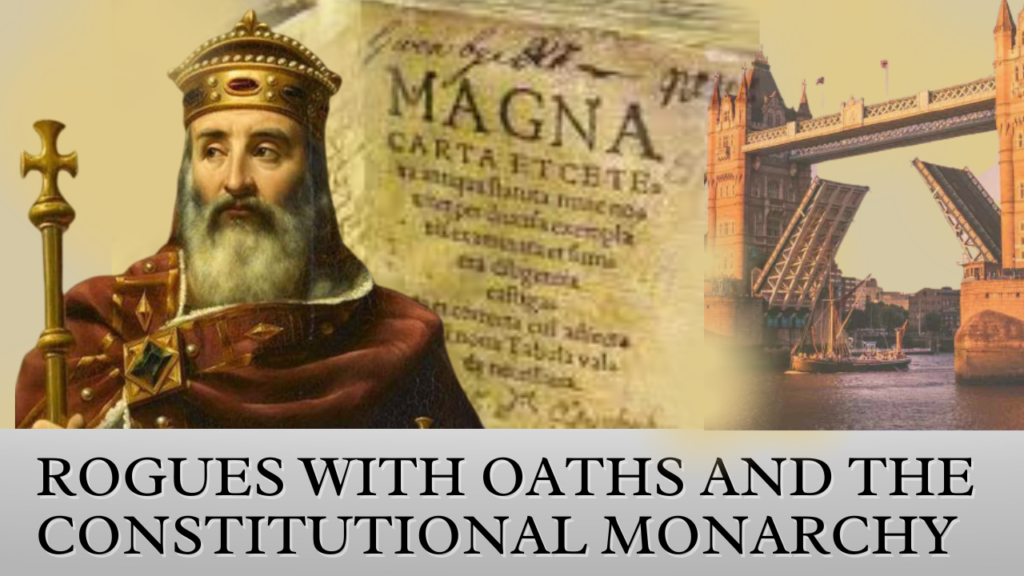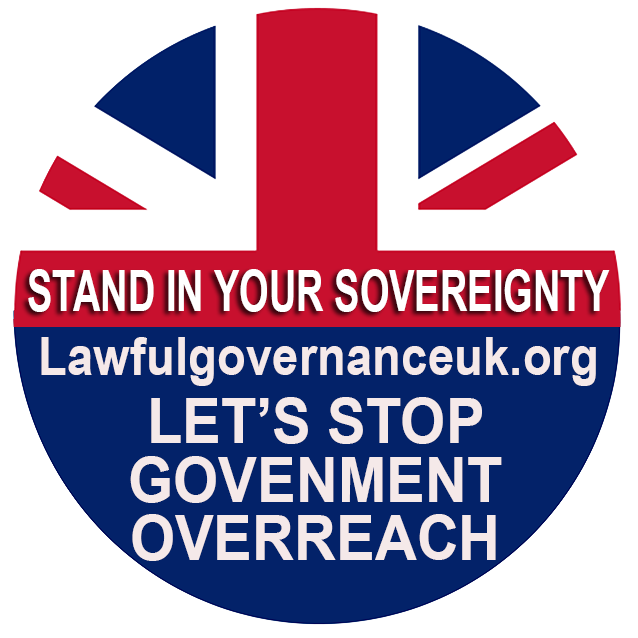
This article was originally posted on commonlawconstitution.org.
In the realm of governance, the interplay between rogue actors and established institutions can shape the course of nations. This article delves into the intriguing relationship between rogues bound by oaths and the constitutional monarchy, exploring how these elements coexist, interact, and influence each other. It highlights the delicate balance of power and accountability within a constitutional monarchy framework, where the monarchy’s authority is limited by a constitution and oaths of allegiance are taken by both rogue actors and those serving in key positions of power.
Understanding Constitutional Monarchy:
A constitutional monarchy is a form of government where a monarch acts as the head of state within the boundaries set by a constitution. The monarch’s powers are usually ceremonial or symbolic, while political power is exercised by elected representatives or other institutions. This system of governance provides a framework for stability, continuity, and a separation of powers, preventing any single individual from gaining unchecked authority.
The Concept of Rogues:
Rogues, in this context, refer to individuals who may challenge the established norms, rules, or principles within a constitutional monarchy. They might include political leaders, public officials, or even members of the monarchy itself who act against the established framework or abuse their positions for personal gain. Their actions can range from political manipulation, corruption, and constitutional breaches to unauthorized exercise of power.
Oaths: A Binding Commitment:
Oaths play a crucial role within a constitutional monarchy. Elected officials, public servants, and members of the monarchy typically take oaths of allegiance to the constitution, the nation, and the people they serve. These oaths represent a solemn commitment to uphold the principles, laws, and values enshrined in the constitutional framework. They serve as a check on the behavior of individuals in positions of power, reminding them of their duty and responsibilities to the nation.
Balancing Power and Accountability:
The presence of rogues within a constitutional monarchy creates a delicate balance between power and accountability. While the monarchy holds symbolic authority, the power to make decisions and govern rests with the elected representatives and institutions. This distribution of power ensures a system of checks and balances, minimizing the potential for rogue actors to exploit their positions.
In the constitutional monarchy model, rogues can be held accountable through various mechanisms. These include legal avenues, such as the judiciary, which ensures the adherence to constitutional principles and provides a forum for justice. Additionally, independent oversight bodies, media scrutiny, and public opinion act as further checks, exposing any wrongdoing and fostering transparency.
Preserving the Constitutional Order:
The strength and resilience of a constitutional monarchy lie in its ability to weather challenges posed by rogues. A robust legal system, impartial judiciary, and a vigilant citizenry are vital for maintaining the integrity of the constitutional order. When rogues emerge, it is the responsibility of the various actors within the system to protect the principles and values enshrined in the constitution, thus safeguarding the nation’s stability.
Conclusion:
Rogues with oaths and the constitutional monarchy share a complex relationship that shapes the dynamics of governance. The constitutional framework sets the stage, delineating the powers and limitations of the monarchy and other actors. Oaths act as a binding commitment, reminding individuals of their duty to serve the nation and adhere to the constitution. Through a delicate balance of power and accountability, constitutional monarchies can withstand the actions of rogues, preserving the stability, continuity, and principles upon which they are built.
